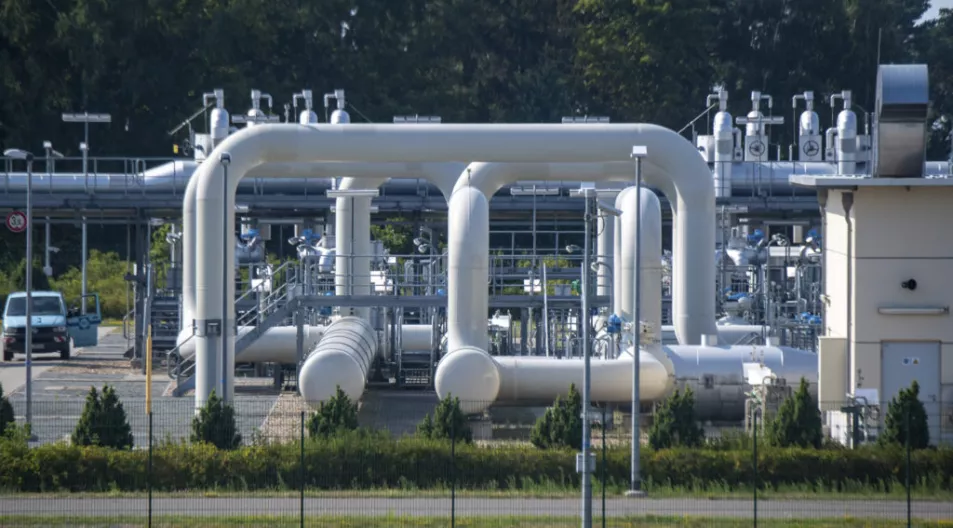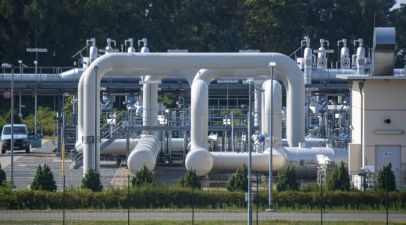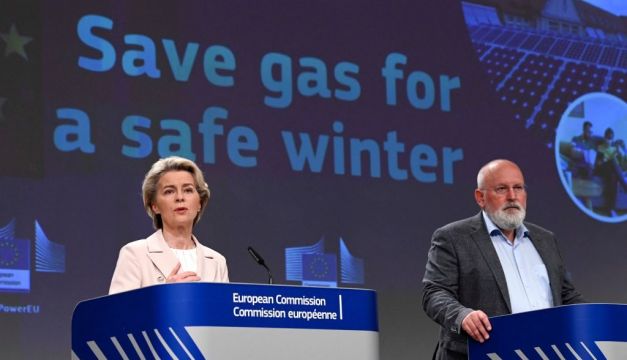European Union countries on Tuesday agreed to an emergency plan to use less gas, as they attempt to save fuel for a winter of uncertain Russian supplies.
Before it invaded Ukraine, Russia was the 27-country EU's top gas supplier, providing 40 per cent of its supply.
Moscow has slashed gas flows to Europe since the invasion in February and this week said it would cut them further, making it harder for EU states to fill their gas storage ahead of winter.
To attempt to get as much gas into storage as possible and prepare for a possible full Russian cut-off, EU countries agreed on Tuesday to reduce their gas demand, albeit with a wide range of exemptions for countries and some industries.
Here's what they agreed:
Voluntary gas cuts
Energy ministers agreed that all EU countries should voluntarily cut gas use by 15% from August to March, compared with their average annual use during 2016-2021.
The cuts could be made binding in a supply emergency, but only if a reinforced majority of 15 EU countries agree to this. The European Commission can propose that the binding cuts are triggered if there is a risk of a severe gas storage in Europe, or if at least five countries ask for this.

Carve-outs and exemptions
The EU Commission, which drafts EU laws, had initially said every country should face the same binding 15 per cent cut. A swathe of countries had opposed that plan, with Spain, Poland and Greece among the critics.
European governments eventually agreed to allow some countries to reduce or opt out of the binding targets.
Ireland, which is not connected to other EU countries' gas networks, will be exempted from the binding 15 per cent gas cut, as would the Baltic countries, whose electricity grids are linked to Russia.
States that overachieve an EU target for filling gas storage by August can request weaker targets – potentially softening the gas demand cuts for roughly a dozen countries, based on current storage levels. For example, Germany's storage is 66 per cent full, versus its target to reach 45 per cent of capacity by August 1st.
Those with a limited ability to send gas to other EU countries can also request a lower target, provided they export what they can.
That could include Spain, which does not rely on Russian gas, and has said cutting its own demand would not help other countries since it lacks infrastructure capacity to share spare fuel.
Countries can ask to adjust their target if they use gas as a feedstock in critical industries, such as energy-intensive steel-making.
Solidarity and savings
EU countries have faced a week of negotiations on the emergency gas plan, which initially faced resistance from many EU countries whose reliance on Russian fuel varies significantly.

Some, like Greece, had said they did not need to curb gas since they could cope with a Russian cut-off. Poland, which had its gas supply cut by Russia in April, opposed the idea that one country's industry should use less gas to help other states facing shortages.
In the end, only Hungary opposed the deal on Tuesday, two EU officials told Reuters.
EU country officials had mixed views on whether the agreement, with all its opt-outs, would ensure enough gas savings to get through the winter - although some noted it was in countries' interests to save gas for winter, even without an EU requirement to do so.
So far EU countries have cut their gas use by just 5 per cent, despite months of Russian supply cuts and surging prices.







